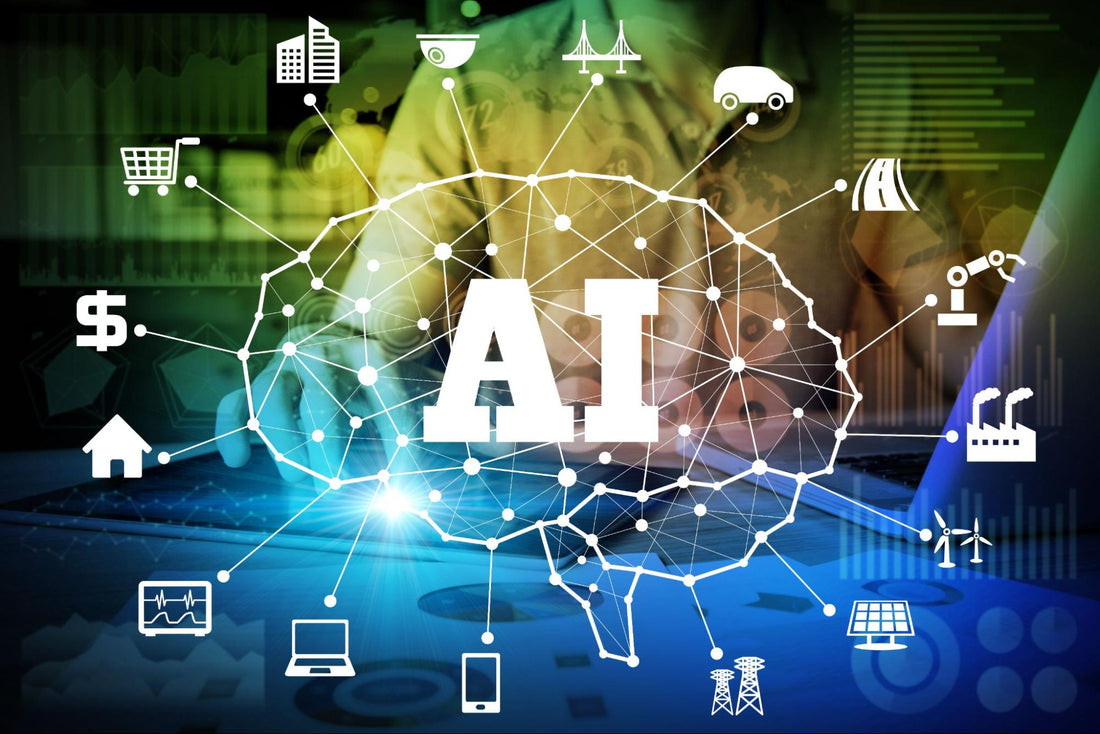
How AI is changing the labour market
SUKH SANDHUIn the modern world, it seems like technology is advancing faster than ever. We’ve seen the rise of artificial intelligence (AI) and automation, and it’s already beginning to affect the labour market. From self-driving cars to virtual assistants, AI has already become an integral part of our lives, and the possibilities for its use are seemingly endless. One of the most impressive AI tools to hit the market is ChatGPT. This revolutionary program is capable of performing complicated tasks that were once only thought to be achievable by humans. From passing exams and giving relationship advice to writing software and even delivering a sermon, ChatGPT has demonstrated an impressive level of intelligence and capability. In a recent study, researchers have revealed which professions are the most at risk of being replaced by robots or AI.
We’ve all heard the warnings that automation and artificial intelligence (AI) could replace humans in the workplace. But now, a new study from Princeton University in New Jersey, US has identified the 20 occupations that are most at risk of being replaced by AI.
At the top of the list is the call centre operator, a job which has been experiencing a sharp decline in recent years due to technological advancements. But it may surprise you to learn that the following eight jobs are all different kinds of teachers, including language teachers, history teachers, law teachers and religion teachers. These roles are all in danger of being taken over by AI, as machines become more adept at taking on tasks traditionally done by humans.
Other occupations that are at risk of being replaced by AI include customer service representatives, market researchers, administrative assistants and bookkeepers. And as AI becomes increasingly sophisticated, more job roles could be put in danger.
Here’s a complete look at the jobs that are most likely to be taken over by AI in the near future.
- Call Centre Operators – Call centre operators are often seen as the first line of customer service for companies. AI is able to handle many of the simple tasks that were once done by humans, such as taking orders or providing basic information. In the future, AI could completely replace call centre operators.
- English Language and Literature Teachers (Higher Education) – AI technology is already being used to teach foreign languages to students. It is only a matter of time before AI can be used to teach English as well.
- Foreign Language and Literature Teachers (Higher Education) – AI could eventually be able to teach foreign languages and literature to students.
- History Teachers (Higher Education) – AI is already being used to teach history in some schools. In the future, AI could completely replace human history teachers.
- Law Teachers (Higher Education) – AI could eventually be able to teach law to students. This could make it easier for students to understand the legal system and help them become better lawyers.
- Philosophy and Religion Teachers (Higher Education) – AI could eventually be able to teach philosophy and religion to students. This could make it easier for students to understand the different beliefs and help them become better thinkers.
- Sociology Teachers (Higher Education) – AI could eventually be able to teach sociology to students. This could make it easier for students to understand the different social structures and help them become better leaders.
- Political Science Teachers (Higher Education) – AI could eventually be able to teach political science to students. This could make it easier for students to understand the different political systems and help them become better politicians.
- Criminal Justice and Law Enforcement Teachers (Higher Education) – AI could eventually be able to teach criminal justice and law enforcement to students. This could make it easier for students to understand the legal system and help them become better law enforcement officers.
- Sociologists – AI could eventually be able to do research in the field of sociology. This could help sociologists to better understand the different social structures and help them come up with better solutions.
- Social Work Teachers (Higher Education) – AI could eventually be able to teach social work to students. This could make it easier for students to understand the different social services and help them become better social workers.
- Psychology Teachers (Higher Education) – AI could eventually be able to teach psychology to students. This could make it easier for students to understand the different psychological conditions and help them become better psychologists.
- Communications Teachers (Higher Education) – AI could eventually be able to teach communication to students. This could make it easier for students to understand the different communication methods and help them become better communicators.
- Political Scientists – AI could eventually be able to do research in the field of political science. This could help political scientists to better understand the different political systems and help them come up with better solutions.
- Area, Ethnic and Cultural Studies Teachers (Higher Education) – AI could eventually be able to teach area, ethnic and cultural studies to students. This could make it easier for students to understand the different cultures and help them become better global citizens.
- Arbitrators, Mediators and Conciliators – AI could eventually be able to do research in the field of arbitration, mediation and conciliation. This could help arbitrators, mediators and conciliators to better understand the different dispute resolution mechanisms and help them come up with better solutions.
- Judges, Magistrate Judges and Magistrates – AI could eventually be able to do research in the field of law. This could help judges, magistrate judges and magistrates to better understand the different legal systems and help them come up with better solutions.
- Geography Teachers (Higher Education) – AI could eventually be able to teach geography to students. This could make it easier for students to understand the different geographical regions and help them become better geographers.
- Library Science Teachers (Higher Education) – AI could eventually be able to teach library science to students. This could make it easier for students to understand the different library systems and help them become better librarians.
- Clinical, Counselling and School Psychologists – AI could eventually be able to do research in the field of psychology. This could help clinical, counselling and school psychologists to better understand the different psychological conditions and help them.
Copyrighting is one such job that is at risk of being replaced by AI. Copyrighting is the process of writing and researching content for the purpose of protecting it from plagiarism, trademark infringement, and other unauthorised uses. Copyright lawyers, editors, and other professionals in this field are increasingly being replaced by AI-driven software.
In addition to copyrighting, there are dozens of other jobs that are also at risk of being replaced by AI. These include roles in data analysis, medical diagnostics, financial modeling, marketing and advertising, web design, customer service, and even legal services.

As AI continues to evolve, it’s becoming increasingly capable of performing complex tasks, often more efficiently than humans. This means that more and more jobs are becoming vulnerable to automation, which could cause serious economic disruptions and leave many people out of a job.
However, there is some good news. Not all job roles are in danger of being replaced by AI. Jobs that require creative thinking, such as those in the fields of engineering and the arts, will still be needed in the future.
So, while it’s true that robots could take many of our jobs, there are still plenty of opportunities for us to stay competitive and secure our jobs for the future. By investing in our skills and focusing on the areas that robots cannot replicate, we can ensure that we remain competitive and our jobs remain safe.
RECENT POSTS





